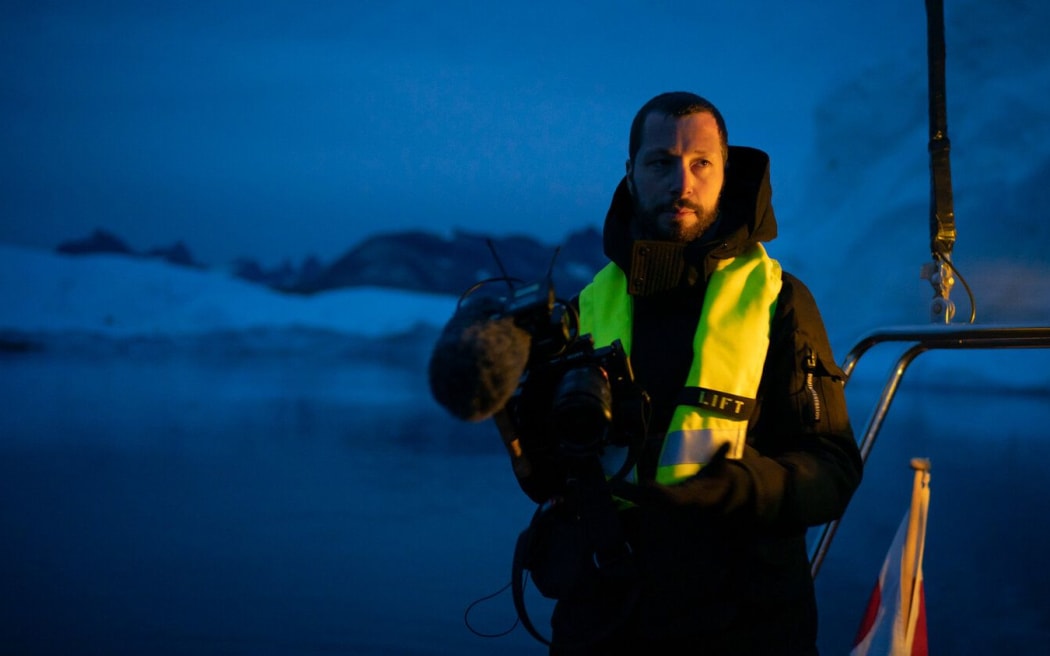Mstyslav Chernov is part of a small team of Associated Press Ukrainian journalists who this week won a Pulitzer Prize for their fearless reporting from Mariupol last year.
For nearly three weeks they were the only international journalists in the port city, exposing horrors of the Russian siege such as an airstrike on a children's hospital and maternity ward.
Their work has been credited with saving thousands of lives, by leading to a push for humanitarian corridors which allowed mass evacuations.

Mstyslav Chernov Photo: AP Felipe Dan
Chernov has turned 30 hours of footage from Mariupol into an extraordinary fly-on-the-wall documentary, 20 Days in Mariupol which is soon to play at the Doc Edge Film Festival in Auckland.
Chernov told Kim Hill how it felt to be surrounded, disguised as doctors, waiting for Russian troops to arrive.
“I remember that moment when we were surrounded by tanks in Hospital Number 2, and every minute there was an explosion, and every minute we were waiting for bomb to hit the hospital.
"Every moment we were waiting for Russian soldiers to walk in.
"And I thought that I have a camera and I have a footage on this camera which has to be somehow sent.
"Because it felt it was so important that you could see you could see tank with a Russian Z shooting in the residential area. This is a rare moment where you have actually a criminal committing a crime on camera.
"And, of course, we were worried for our lives, but we felt we were not alone, the policeman was with us and doctors were with us. So there was always kind of a glimpse of hope.”
His job as a journalist was to ensure there was an accurate record of what went on in Mariupol, he says.
“I'm not in a position, and I don't think anyone is in a position to decide for anyone else what to think. And what conclusions to make, better we can give people a context or they will be susceptible to lies.
“So that is one of the reasons why this film 20 days in Mariupol was created.”
The film captures the bombing of a maternity hospital after which Russian propaganda kicked in, he says
“The moment the Maternity Hospital was bombed, when we came there and realised what happened it felt so important, felt so huge, that immediately I thought, well, this is going to resonate in the whole world and of course it's going to resonate in Russia.
“A very similar thing happened to me in 2014 when I was one of the first international journalists that came on the crash site of the MH 17 Boeing that was shot down by Russians.”
The propaganda aims to confuse and muddy the water, he says.
“The main method propaganda uses is not to create a version of the truth, just create multiple, multiple versions to confuse people.”
The strikes on hospitals were deliberate, he says.
“If you take a look at the statistics of hospitals being destroyed in Ukraine, you will see a system... the statistics points out that the strikes most likely were deliberate just because of the amount of hospitals damaged and the precision with which they were damaged.”
20 Days in Mariupol plays at the Doc Edge Film Festival in Auckland on 31 May, Wellington on 14 June and online 19 June to 9 July.

